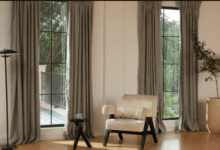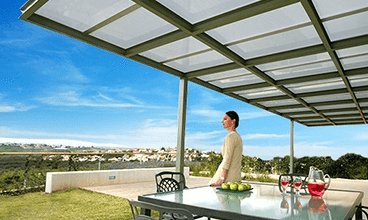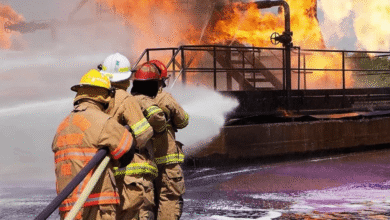Top Tips for Affordable Window Replacement in Canada

Did you know Canadian homes lose a lot of heat through old windows? This can power a small city for a week. It’s a big problem, affecting both your wallet and comfort, more so in cold winters.
Replacing your windows is more than just making your home look good. Smart material choices and energy-efficient designs can cut your heating costs by up to 30%, says Natural Resources Canada. The key is finding the right balance for your local climate.
Every province in Canada has its own weather challenges. Ontario deals with humidity, while Alberta faces extreme cold. Many places offer rebates for energy-saving upgrades. These deals are often overlooked by first-time buyers.
We’ll show you how vinyl windows work better in rainy areas, and triple-pane glass is best in the prairies. We’ll also reveal where to find tax credits for home improvements. Learn how smart choices can save you money all year and increase your home’s value.
See also: Benefits Of Hiring Professional Builders For Home Projects
Understanding Window Replacement Costs Across Canada
Replacing windows in Canada is about balancing cost with climate needs. Whether you live in snowy Alberta or rainy British Columbia, prices vary. This is due to three main factors: materials, window styles, and local weather demands. Let’s explore what affects your final cost.
Key Factors Affecting Installation Prices
Your window replacement cost is influenced by your choices before installation starts. From the material to the energy rating, each choice affects your budget and home comfort.
Material Choices: Vinyl vs. Wood vs. Composite
Vinyl windows are the most affordable, costing $450 to $900 per window. They’re great for Canada’s cold weather. Wood frames cost almost double, at $800-$1,600 per window, but offer classic looks and better insulation in cold weather. Composite materials, like Fibrex®, cost $700-$1,200 and resist rot better than wood in humid areas.
| Material | Cost Range | Energy Efficiency | Best For |
| Vinyl | $450 – $900 | Good | Budget-conscious homeowners |
| Wood | $800 – $1,600 | Excellent | Historic homes/cold climates |
| Composite | $700 – $1,200 | Very Good | High-moisture regions |
Window Styles: Double-Hung vs. Casement vs. Picture
Double-hung windows are popular in Canada for their ventilation and easy cleaning. They cost $600-$1,100 on average. Casement windows, at $700-$1,300, seal tighter against wind, making them great for prairie provinces. Picture windows, costing $400-$800, don’t open but let in lots of light.
Canadian Climate Considerations for Energy Efficiency
In Canada, Energy Star® certification is key. In Ontario, look for U-factors below 1.22 for heat retention. Alberta needs triple-pane glass for -40°C winters. Coastal BC focuses on windows with condensation resistance over 60 to fight humidity.
Provincial Price Variations
Where you live in Canada affects your costs. Labor rates, material availability, and local building codes all play a part in price differences across provinces.
Average Costs in Ontario vs. Alberta vs. BC
Ontario has mid-range pricing, with a 10-window vinyl replacement costing $8,500-$12,000. Alberta’s harsh winters increase costs by 15%. BC saves 10% due to milder weather. Toronto’s HELP program offers rebates up to $3,500 for energy-efficient upgrades.
Urban vs. Rural Installation Differences
City installations are often cheaper due to competition. Expect to pay $150-$250/hour for labor in major cities. Rural projects face travel fees ($50-$150 per trip) and fewer installer options. One Saskatchewan homeowner waited 8 weeks for a certified installer willing to travel to their farm.
Best Value Window Options for Canadian Homes
Canadian homeowners have to balance window quality and budget. Harsh winters and humidity changes make the right materials key. Let’s look at two great options that save money without sacrificing quality.
Vinyl Windows: Budget-Friendly Champions
Vinyl is Canada’s top choice for windows. It stands up to -40°C and UV rays without peeling. Canadian brands like Gentek and Duxton make special designs for our climate.
Canadian-Made Brands: Gentek vs. Duxton
| Feature | Gentek | Duxton |
| Price Range (CAD) | $300-$450/window | $350-$500/window |
| Warranty Period | Lifetime limited | 50 years |
| Energy Efficiency | 0.28 U-factor | 0.25 U-factor |
| Frame Colors | 12 standard options | 8 standard options |
Lifetime Warranties and Maintenance Benefits
Top Canadian vinyl brands offer lifetime warranties. Gentek’s ForeverSeal covers glass and seal issues. People love vinyl for its easy care:
- No need for seasonal painting or staining
- Mildew-resistant surfaces
- Wipe-clean tracks
Hybrid Windows: Smart Mid-Range Choices
Hybrid windows offer wood looks with vinyl strength. Canadian makers excel in these designs. Fibrex composites mix recycled wood and PVC for extra strength.
Fibrex Composites From Canadian Manufacturers
Alside’s FusionTec and Andersen’s Fibrex lead in hybrids. They offer:
- 40% better insulation than aluminum
- Custom stain or paint finishes
- 50-year structural warranties
Balancing Upfront Cost With Long-Term Savings
Hybrids cost 15-20% more than basic vinyl but save money over time. A Toronto homeowner saved $142 a year on heating with Fibrex windows. Most see cost savings in 7-10 years through:
- Federal Greener Homes rebates
- Reduced HVAC strain
- Increased property value
7 Proven Strategies to Reduce Your Project Costs
Smart homeowners know cutting window replacement costs starts with strategic planning – not cutting corners. Let’s explore actionable methods to save while maintaining quality.
Work With the Calendar, Not Against It
Timing impacts pricing more than most realize. Installers often offer 10-15% discounts during slower months when demand drops.
Off-season discounts (October-March)
Contractors compete for business when temperatures dip. January-February typically yield the deepest savings in most provinces. Some companies even waive emergency service fees during these months.
Manufacturer rebate periods
- Look for March Madness sales from vinyl suppliers
- Check composite window brands for Q4 clearance events
- Sign up for distributor newsletters to get rebate alerts
Materials That Save Now & Later
Choosing energy-efficient windows does double duty – lowering bills while qualifying for incentives.
Energy Star certification requirements in Canada
To earn the logo, windows must meet strict U-factor and SHGC ratings:
| Climate Zone | Minimum U-Factor | Maximum SHGC |
| Southern Canada | ≤1.22 | ≥0.23 |
| Northern Canada | ≤0.83 | Any |
Optimal glass coatings by region
- Prairie provinces: Low-E coatings to combat extreme temperature swings
- Coastal areas: Triple glazing for humidity control
- Urban centers: Noise-reducing laminated glass
Let Governments Help Foot the Bill
Federal and provincial programs can cover up to $5,600 of your project costs through rebates.
Canada Greener Homes Grant breakdown
This national initiative offers:
- $250 per window (max 15 windows)
- Free EnerGuide evaluations worth $600
- Interest-free loans up to $40,000
Provincial rebate programs
Toronto’s Home Energy Loan Program (HELP) provides:
- 0% financing for 20 years on eco-upgrades
- Rebates covering 15% of project costs
- Fast-track approvals for ENERGY STAR products
Combine these strategies – schedule installations during rebate seasons, select certified materials, and stack incentives – for maximum savings. One Calgary family recently slashed their $14k project to $8,200 using these exact methods!
Choosing Reliable Canadian Window Installers
Finding a good window installer means quality work. But, it’s key to spot any red flags in quotes. Almost 23% of homeowners face unexpected fees, as shown in Canadian Choice surveys. Here’s how to pick the right installers.
Red Flags in Contractor Estimates
Contractors like Yuri from Canadian Choice are all about being open. But, some quotes might hide costs. Look out for these warning signs.
Spotting Hidden Fees in Quotes
Check for vague charges like “miscellaneous materials” or “site prep fees.” A homeowner in Ottawa saw a 12% price jump due to hidden disposal costs. Always ask for:
- Details on labor vs. material costs
- Written price guarantees
- Clear info on permit responsibilities
Verifying CSA Group Certifications
CSA-certified installers meet Canada’s high standards for energy and safety. Ask for their certification number and check it on the CSA Group’s online database. Proper credentials lower installation risks by 68%, reports show.
Questions to Ask Before Signing
Top companies like Canadian Choice train their teams to answer these questions well:
Warranty Coverage Specifics
“Does your warranty cover both materials and labor if seals fail?” Make sure you understand the coverage. Some brands only protect glass for 5 years, while frames get 20-year guarantees.
Installation Crew Qualifications
Ask: “How many years has your team worked together?” Teams like Yuri’s, with 8 members, finish projects 40% faster. This means less disruption to your home. Also, check if they’re insured for workplace injuries.
Smart homeowners also check online reviews. A Toronto family dodged a scam by noticing their installer wasn’t CSA certified. Be careful – your windows need expert care.
Smart Choices for Lasting Home Improvements
Choosing affordable window replacement in Canada is a smart move. Homeowners can see a 68% return on investment when they upgrade their windows. Energy Star-certified windows also help save 12% on heating and cooling costs in most provinces.
When picking windows, think about the material and who installs them. Vinyl windows from Jeld-Wen or Ply Gem are durable and cost less than $600 each. Hybrid windows offer a good mix of price and quality. Getting windows installed during the off-season can also save you money.
The Canada Greener Homes Grant offers up to $5,000 for energy-efficient upgrades. You need to work with certified contractors. Ontario and British Columbia also have rebates for certain window replacements.
Make sure your installer is certified by Fenestration Canada before you sign anything. Ask for detailed quotes that include warranties and guarantees. Well-installed windows can prevent energy loss, which is 25% of your home’s energy use.
Look for Energy Star promotions and local incentives when planning your project. Certified pros listed in the Home Efficiency Loan Program (HELP) offer financing for quick upgrades. Begin your path to lower bills and more comfort by getting a free energy assessment today.





